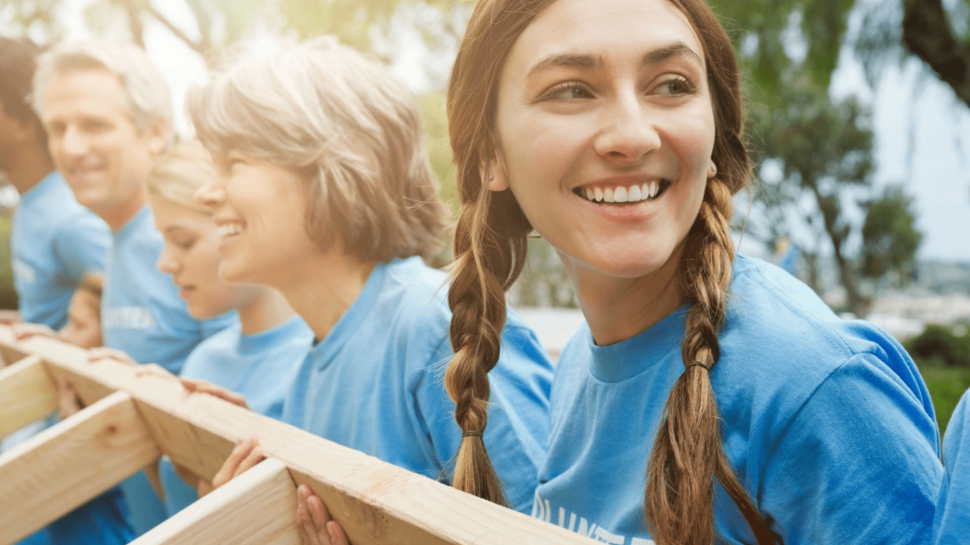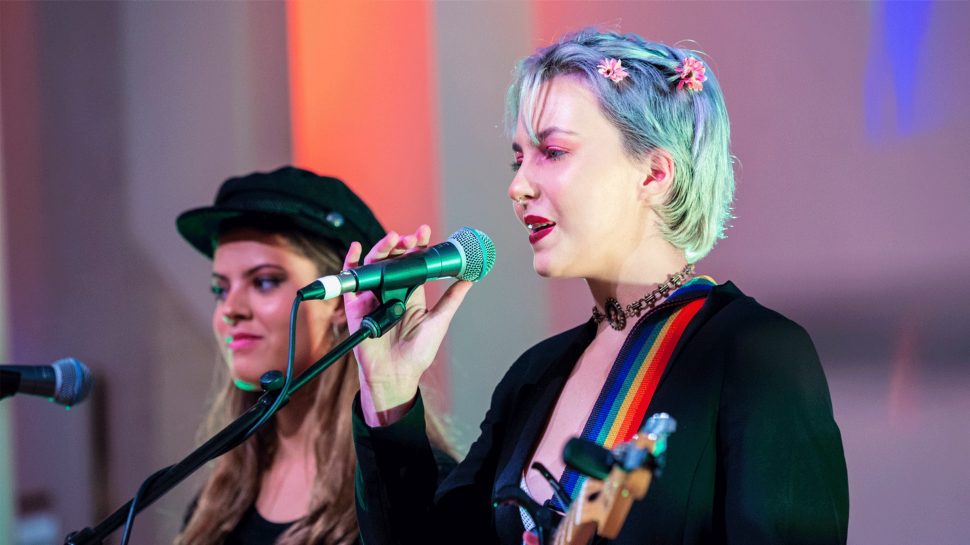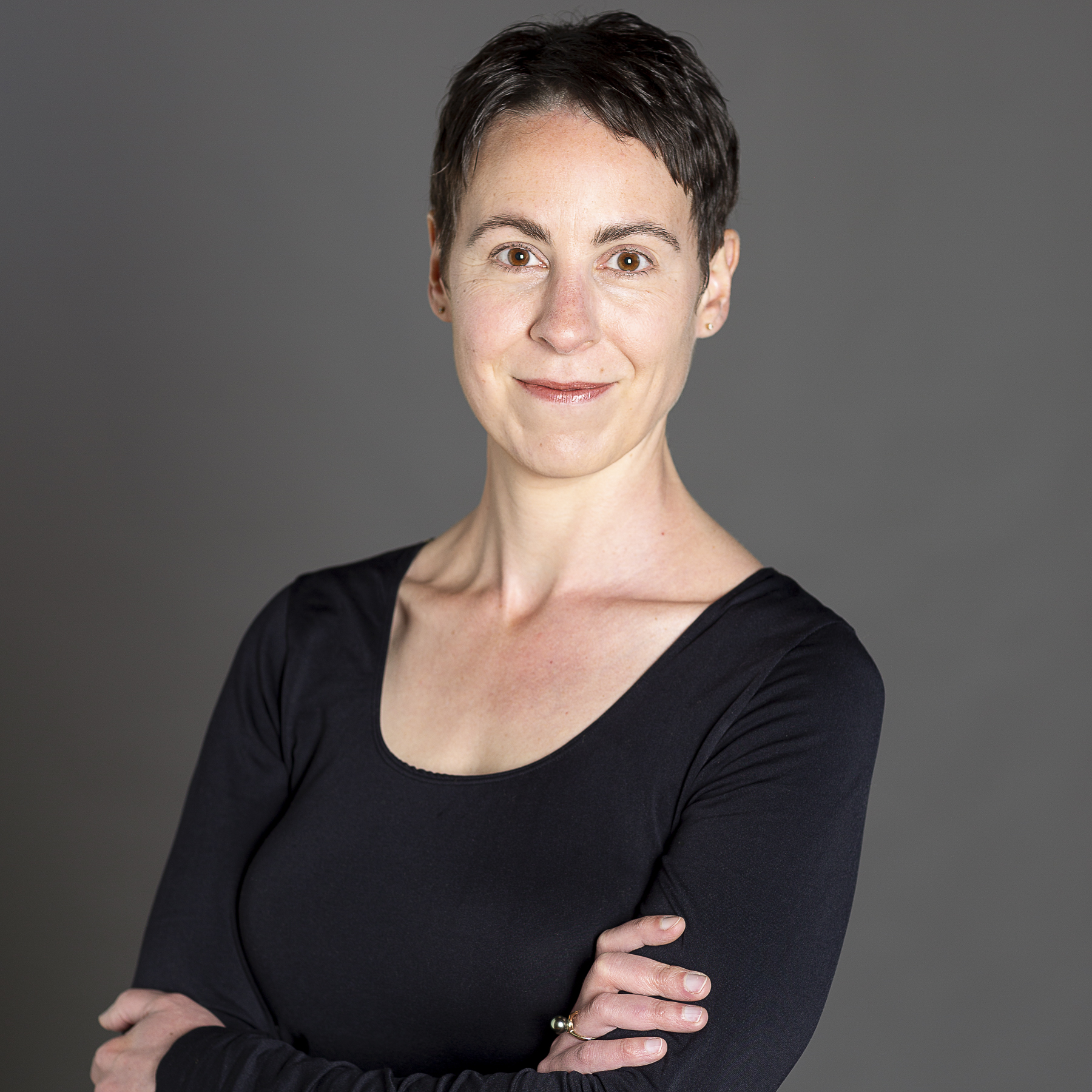10 ways local not-for-profits have used their Community Grant
Wondering how your community group could maximise all the benefits of an Australia Post Community Grant? Here are 10 inspiring ideas to celebrate a decade of our Community Grants program.
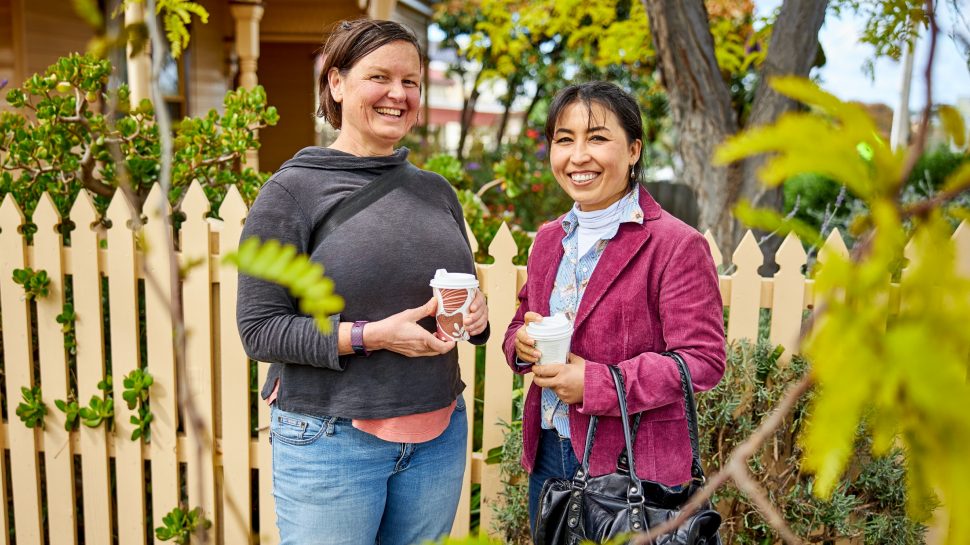
The Australia Post Community Grants program supports projects that create meaningful connections and boost mental wellbeing in local communities, with grants of up to $10,000.
“Australia Post is connected to every community in Australia,” says Nicky Tracey, General Manager Community and Stakeholder Engagement at Australia Post. “We provide essential products and services to help connect people to each other and the world, and our Post Offices and Posties are the hub of many of our regional and rural communities. That’s why it’s so important that we invest in the great work community organisations do every day to connect people and support mental health in local areas.”
If you volunteer with or work for a local not-for-profit, you might be wondering if you could apply for a Community Grant. Will your project fit the bill?
Over the last decade, we’ve funded 750 Community Grants projects that have created positive change in countless people’s lives. To celebrate, let’s take a look at how 10 of those recipients have maximised the benefits of a grant.
1. A project that connects refugees with others in the community
It’s the members of a community who are best placed to understand local issues and what will work to help address them – like the New Links Visiting Program by Diversitat, which was funded by a Community Grant to connect refugees with others in the local community.
“Here in Geelong, we resettle 200-300 refugees each year,” says Melissa Bird, Community Wellbeing Worker at Diversitat. “From some feedback, they feel like they've resettled in Australia, but they don't necessarily get to be involved themselves in the wider community.”
To help address this need, Diversitat connected participants with volunteer mentors who share similar interests, and who visit with them regularly. These regular catch-ups help them to gain more confidence to create new connections.
“When I arrived, I didn’t have any connections with anyone. When I met Gyan, I found a part of family. This is now my home,” says Selma, a New Links Visiting Program participant.
2. Regional Community Grants to encourage regular connection
The North Midlands Project, located in regional Western Australia, works hard to create happy, healthy and connected communities.
“We're in small, regional, geographically dispersed communities, so it's really important to bring people together and create social opportunities,” says Andrew Bowman-Bright, Community Program Manager at the North Midlands Project. “Community connectedness is really important for the general health and wellbeing of the people in our community.”
This level of connection in a regional area takes effort, so the volunteers of the North Midlands Project submitted a Community Grants application.
With this support, they ran a targeted community connection initiative, engaging over 6,000 community members across the towns of the North Midlands area.
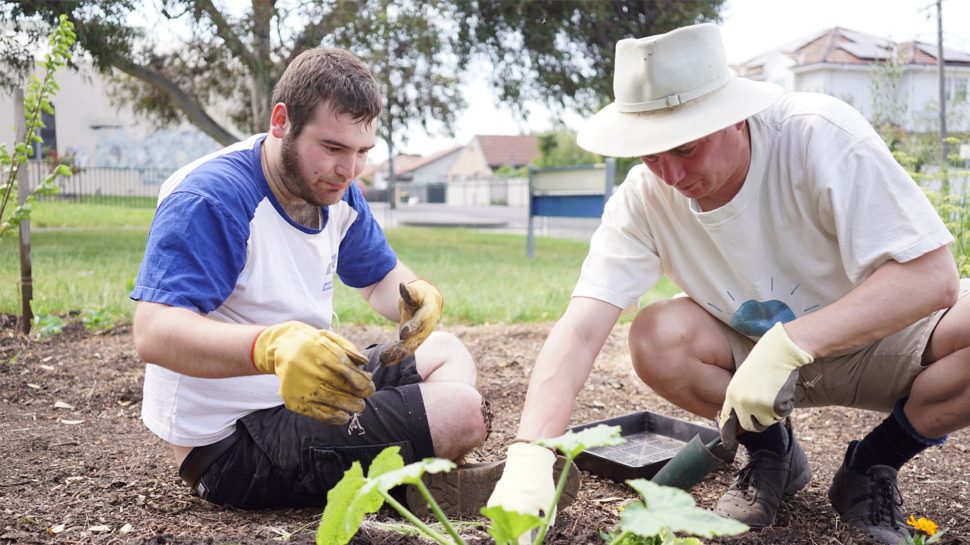
3. A community gardening project inclusive of people who live with illness or disability
A safe space that feels welcoming, comfortable and inclusive: that’s the aim for Reynard Street Neighbourhood House.
“We run a range of community activities and programs aimed at increasing wellbeing and connection,” says Hannah Evans, Volunteer and Training Coordinator. “We want to make sure that everyone in our community has a place where they feel welcome, comfortable and included.”
A community garden project was the focus of Reynard Street Neighbourhood House’s successful 2019 Community Grant application.
The gardening project aimed to provide access to anyone in the community who wanted to take part, including those who are socially isolated or living with an illness or disability. “Our biggest challenge at the beginning was making the tasks accessible and safe. With the Australia Post grant, we were able to fund a facilitator to research and spend time getting the program up and running. And we were able to purchase tools to help with mobility,” says Hannah.
4. Connecting caregivers to support each other
When Special Needs Fraser Coast asked local caregivers about their experiences of parenting a young person with a disability, they heard many stories of social isolation.
Inspired by these stories as well as her personal experiences, Karen Baker, founder and director of Special Needs Fraser Coast, formed the group to help caregivers provide peer support to each other. This was incredibly successful, but Karen wanted to do more.
The community group received a Community Grant to run a program they dubbed Get Your Happy On, a series of evidence-based workshops for caregivers of children with a disability. The workshops teach self-care tools, resilience strategies, and coping techniques such as breathing and meditation. This results in the caregivers being able to better manage their mental and emotional health and boosting their confidence to participate in the community.
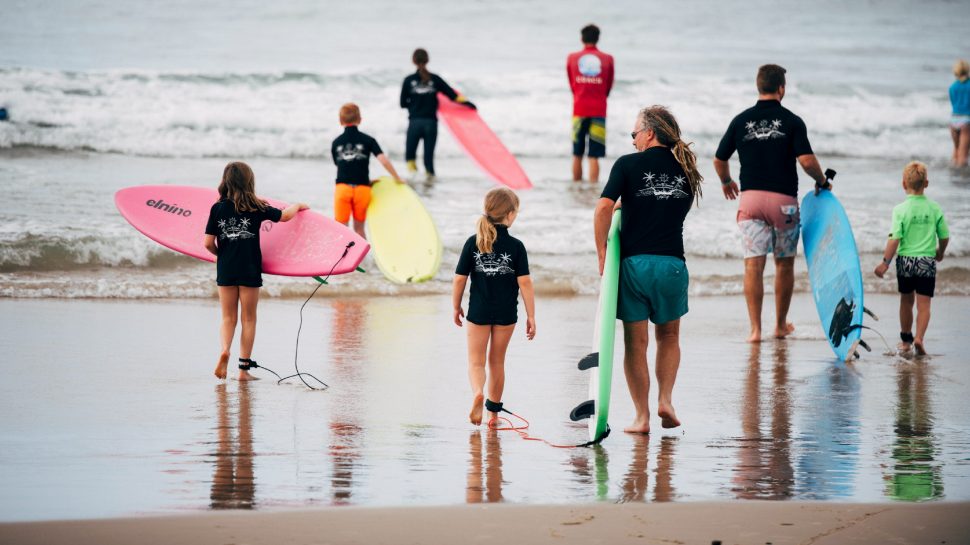
5. The surf program that’s changing the lives of kids and teens
SalTy Souls received a Community Grant to support their six-week surfing program, Stand Tall. This is where vulnerable children and teenagers on the Gold Coast and Sunshine Coast learn positive mental health strategies and re-engage with the community through learning to surf.
“We have so many children, from those being bullied to children with autism and cerebral palsy,” says Tamara Smith, Co-founder of SalTy Souls. They also support children with trauma backgrounds, mental illness, those in foster care, victims of domestic violence and more. “But no matter what, they’re gaining this new self-confidence and it helps them to have better role models and hopefully, then, better life choices.”

6. Connecting and empowering LGBTQIA+ youth
One of the biggest challenges facing LGBTQIA+ youth is social isolation. Fostering a strong sense of community and connection has been at the heart of Minus18 since its beginning in 2011, with a mission to create an Australia that’s free from discrimination for all LGBTQIA+ youth.
Receiving a Community Grant meant Minus18 was able to recruit and train LGBTQIA+ youth from diverse backgrounds to participate in and lead engagement activities with their peers. This included the Minus18 Midsumma Carnival Youth Pavilion and the Midsumma Pride March.
Adrian Murdoch, Minus18’s Partnerships and Campaigns Coordinator, says, “Thanks to the grant from Australia Post, we can fund the training and skill development needed to help them curate these events, as well as support young people through interactive activations.”
7. Walking to connect the local community
Walking and talking is a great way to connect with others in the local community, make friends and boost mental wellbeing.
The Willi Walking Group began after the Williamstown Community and Education Centre received a Community Grant. Designed as a weekly activity for local mature aged community members, the walking group aims to build meaningful community connections and decrease social isolation. The walks are also followed by a chance to connect further over morning tea.
“Part of our work is trying to get community members out and engaged in programs,” says Mark Brophy, Manager and CEO of Williamstown Community and Education Centre.
“During the lockdowns … people were isolated, affecting their mental health and wellbeing. The regularity of the walks and morning teas provides a starting point for a change of mindset and positive attitudes.”
8. Grant funding for community projects that create intergenerational connection
When people share common interests, they can connect with people of any generation. That’s the idea behind Uniity, a community group promoting intergenerational connections.
“One of the best ways to increase mental health outcomes is through friendship, and then that has a ripple effect out into the greater community,” says Adrianna Pearce, Co-Founder of Uniity.
Uniity’s Community Grant funded the Connections Across Generations project to help people connect over shared interests and activities such as arts, culture, books, food and family.
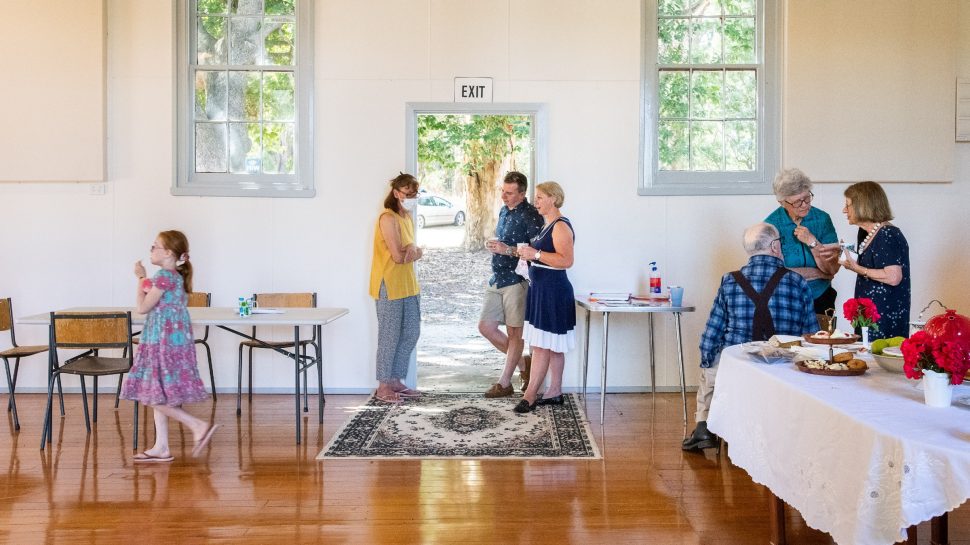
9. A simple cup of tea with a powerful impact
The Budgeree Hall Reserve Committee was awarded a Community Grant for their project Budger-Tea, a series of morning teas to strengthen local community connections and provide a safe environment for peer-led support.
“Budger-Tea has been far more successful than we ever imagined!” says Leanne Potter, Budgeree Hall Reserve Committee Secretary. "Every week we have at least 20 participants, the most being 56. At the beginning, the committee provided the refreshments each week but as we continued, participants started bringing along cakes, biscuits and slices.”
Participants then also started bringing bunches of flowers for the tables, excess fruit and vegetables from their gardens and plant clippings to share. Recipes have been swapped and friendships made.
“Many participants have told us that Budger-Tea is the best part of their week,” Leanne adds.
10. Using sport to help those experiencing poor mental health
Reclink Australia opened its doors 30 years ago with a mission to help rebuild lives through sport and art in local communities.
One of Reclink’s many initiatives is Street Games, a pop-up program that uses sport, recreation and coaching programs to promote social inclusion and improve the lives of people experiencing disadvantage and poor mental health.
They received an Australia Post Community Grant to expand Street Games to two more locations in the Perth and Rockingham regions of WA, providing even more opportunities for improved connection and mental wellbeing support to communities.
“Without the support of Australia Post, we wouldn't have been in a position to be able to do that,” says SarahKitis, Reclink Australia’s State Manager in Western Australia.
“Receiving the grant was really important for us, and it has been instrumental in helping us expand to support more disadvantaged communities.”
Connecting local communities
Connecting local communities
Australia Post is Delivering the Goods for local communities with grants to support mental wellbeing. Because when we connect, we feel better.
